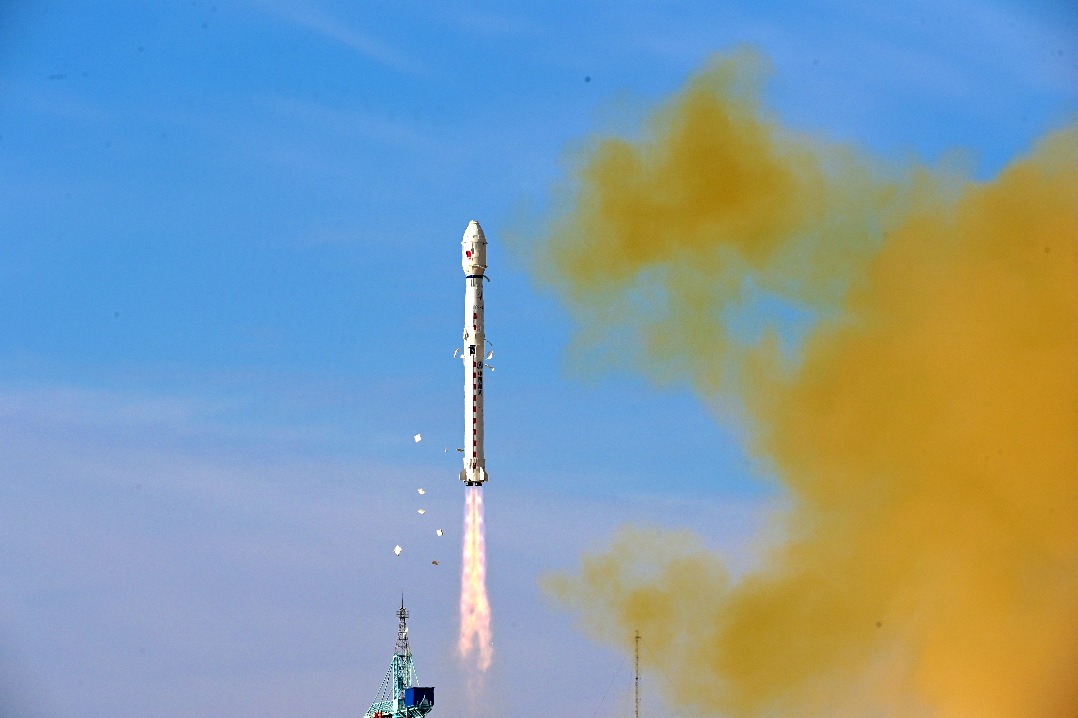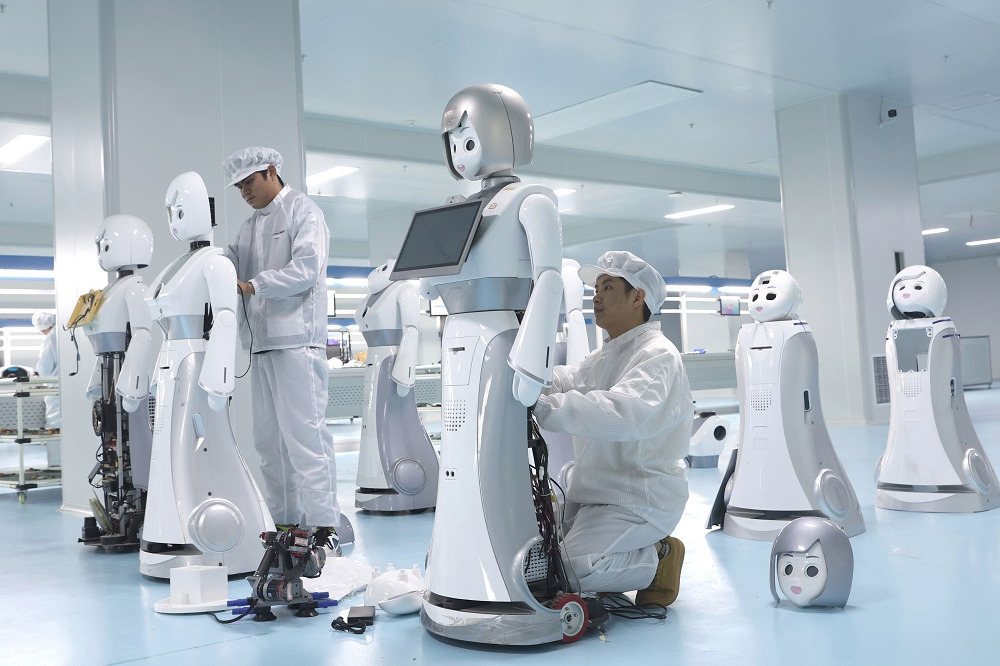Anti-drug trial bearing fruit


Deep brain stimulation helps addict lower methadone intake by nearly half
The daily intake of methadone - which reduces withdrawal symptoms for people addicted to narcotics - fell almost by half for a patient with 30 years of drug abuse after undergoing two weeks of deep brain stimulation, said doctors at Ruijin Hospital, which is affiliated with the Shanghai Jiao Tong University School of Medicine.
The deep brain stimulation, achieved through implanting two "chips" in the brain, is meant to help eliminate the patient's drug addiction.
Doctors responsible for the project said that after two weeks of stimulation, the addict's daily intake of methadone dropped from nearly 140 milliliters to 70 milliliters, close to the average amount that a patient uses if they're taking methadone every day. They added that the result at this phase was impressive.
The patient, who had unsuccessfully tried various means to abandon drug use, became a voluntary participant in the clinical trial that began a month ago. The trial's aim to suppress dependence on methadone is the first and the only of its kind in the country so far.
Surgeons drilled two small holes in his skull and fed two chiplike electrodes deep into his brain. They also put an impulse generator in his chest. Physicians can use the generator to make adjustments to the electrodes in the patient's brain with a pacemakerlike programmer.
Sun Bomin, director of functional neurosurgery, explained that addicts' repeated drug use is closely related to the reward system in their brains, which can generate pleasant sensations when they take drugs.
"The idea of the surgery is to target this specific brain area for deep brain stimulation and rid the addicts of the pleasure associated with drugs. The hope is that it will become easier for patients to decrease drug intake gradually," he said in an interview ahead of International Day against Drug Abuse and Illicit Drug Trafficking on Wednesday.
Research manager Zhang Chencheng said that doctors will make adjustments to the voltage, frequency and pulse width for each patient based on their conditions, such as their mood, anxiety and cravings for drugs.
Two drug addicts have been included in this pilot clinical trial - which aims to treat 12 patients in total - and their integrity, subjective desire to quit drugs and family support are key factors for enrollment.
Each patient will be observed in the trial for 12 months, Zhang said.
"Theoretically, their cravings will plummet within one or two months after the implant, and they can finally lose their desire for opioid drugs," he said. "Patients should also get relief from negative emotions and anxiety and see an enhancement in self-confidence."
Researchers said they focused on methadone as it is a legal substitute for opioid drug addiction in China as well as in many foreign countries, but many of the substitute therapy participants want to stop using it because of its side effects.
In addition to the opioid-focused trial, Ruijin Hospital has also been involved in a national clinical trial of deep brain stimulation to treat heroin addicts for two years. Hospitals in Chengdu, Xi'an, Guangzhou and Beijing have also been involved.
A patient with more than 10 years of heroin abuse earlier this month had the two electrodes implanted in his brain removed after the surgery two years ago.
Zhang said that the condition of the man, who is in his 40s and was the first patient in the pilot heroin clinical trial, was generally stable after the implant. He took drugs twice four months after the surgery and has not relapsed. Doctors had switched off the stimulation 18 months after the implant.
"The triumph in quitting drug use also helped him to develop a stable relationship," Zhang said.
Researchers said that deep brain stimulation was approved in Europe and the United States to treat patients suffering from obsessive-compulsive disorder in 2009.
"Drug addiction is similar to OCD to some extent - doing what one doesn't want to do repeatedly," said Zhang, adding that the way of intervention and stimulation is the same as approved therapy in Europe and the United States.
Internationally, researchers in the Netherlands were the first to conduct a clinical trial for deep brain stimulation to treat drug addicts in 2012, but the research was halted because they did not enroll enough participants. Similar research is currently being conducted in Germany, Zhang said.
Du Jiang, a professor of addiction at Shanghai Mental Health Center, said that the surgery may be an ideal approach to help addicts if it eventually proves effective.
- Communist Party expels former senior Dalian official
- Yunnan rose named after uncle 'who looks like a flower'
- Changsha becomes fourth city to host Chinese-built C919 jet
- Xi delivers 2026 New Year message
- PLA completes the Justice Mission 2025 exercise
- Rockets for Taiwan like 'porcupine in glass box': expert



































